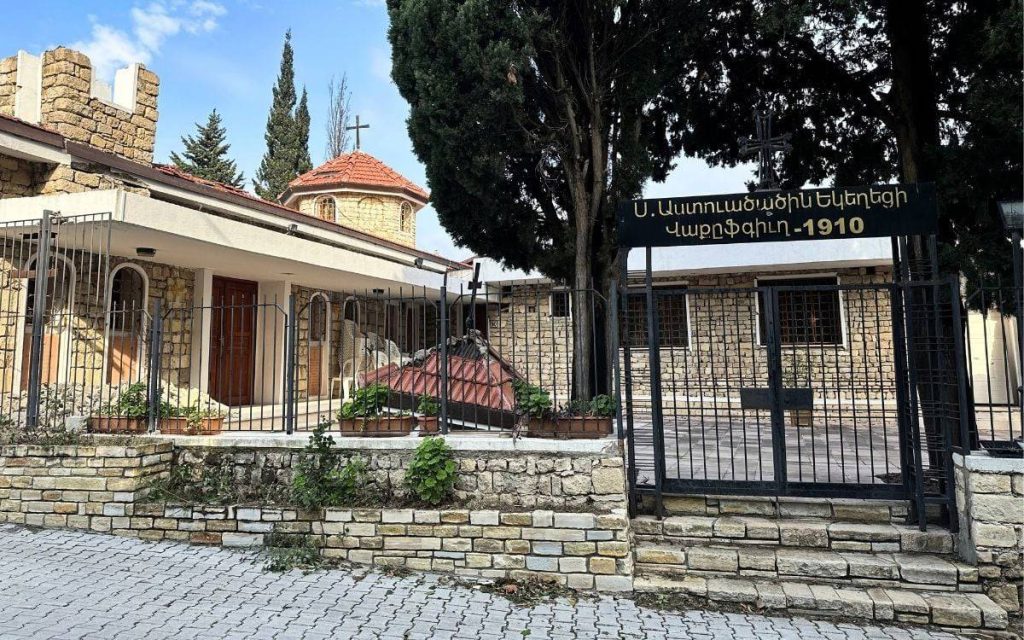Vakıflı, recognized as Turkey’s last Armenian village, is under significant threat due to imminent expropriation linked to a large-scale public housing project initiated by the Housing Development Administration (TOKİ). Located in the Samandağ district of Hatay, the project aims to construct 1,353 housing units, which has raised alarms among residents who fear it could irrevocably alter the village’s historical, cultural, and social landscape. As the community grapples with the potential loss of their unique identity, local authorities are advocating for their rights and heritage against government-led development initiatives.
| Article Subheadings |
|---|
| 1) Overview of the Expropriation Threat |
| 2) Community Response and Concerns |
| 3) Historical Background of Vakıflı |
| 4) Legal Disputes over Property Rights |
| 5) Future Implications for the Village |
Overview of the Expropriation Threat
The decision to include Vakıflı in the TOKİ development plan has generated significant unease among its residents. The project stems from measures taken following the catastrophic earthquakes in February 2023, which devastated much of Turkey, including the Hatay region. With the ambition of constructing 1,353 housing units, the project encompasses residential areas, agricultural land, and other properties within the village. Many residents express concern that this initiative may lead to their displacement and the erasure of their rich cultural heritage.
Community Response and Concerns
Residents of Vakıflı have voiced strong opposition to the impending expropriation, as their cultural and historical identity hangs in the balance. A prominent local resident, who wished to remain anonymous, shared insights on community meetings to discuss the situation, stating,
“We are a village that has existed for centuries. We fear not only for our cultural and historical heritage but also for the demographic makeup of our community.”
Approximately half of the village is identified within the expropriation zone, amplifying worries about losing their status as Turkey’s last Armenian village. The village mukhtar, Berç Kartun, echoed these sentiments, highlighting that clarity regarding the village’s fate would emerge from a meeting with regional officials.
Historical Background of Vakıflı
Vakıflı holds a unique place in Turkey’s history as one of the few remaining Armenian enclaves after the forced displacement of Armenians from the Musa Dagh region during the early 20th century. Over time, Vakıflı has remained a bastion of Armenian culture amid a complex historical backdrop. When Turkey annexed the İskenderun Sanjak in 1939, the last remnants of the Armenian community largely settled in Vakıflı. As they strive to maintain their traditions and identity, residents view the current expropriation threat as a continuation of historical patterns of marginalization.
Legal Disputes over Property Rights
Legal concerns surrounding property ownership and rights further complicate the situation in Vakıflı. The Vakıflı Armenian Church Foundation has initiated legal proceedings to reclaim 36 properties deemed to rightfully belong to the Armenian community. These properties were previously transferred to the state treasury and private individuals, sparking a long-standing struggle for legal redress. Despite a ruling from Turkey’s Constitutional Court in 2022 recognizing the violation of property rights, there has been little progress in returning the disputed properties to the foundation. As these legal battles continue, the uncertainty over ownership rights adds another layer of anxiety for the residents.
Future Implications for the Village
The potential consequences of the expropriation plans extend beyond immediate housing concerns. Should the TOKİ project proceed, it could significantly disrupt the social fabric of Vakıflı and diminish its uniqueness as a vibrant Armenian village. Local residents worry not just about loss of homes but also about the long-term impacts on their identity and community cohesion. The fears of cultural erasure looms large as both governmental and private interests align against the community’s wishes, pushing them into a corner of vulnerability. The outcome of these developments may set a precedent for other marginalized communities facing similar threats in Turkey.
| No. | Key Points |
|---|---|
| 1 | Vakıflı, Turkey’s last Armenian village, faces expropriation due to a housing project. |
| 2 | The TOKİ project plans to build 1,353 housing units, impacting both residential and agricultural lands. |
| 3 | Local residents are deeply concerned about losing their cultural identity and historical heritage. |
| 4 | The Vakıflı Armenian Church Foundation is engaged in legal battles to reclaim properties. |
| 5 | The developments could have significant implications for future housing policies affecting marginalized communities. |
Summary
The situation in Vakıflı emphasizes the delicate balance between development interests and community rights. As the last Armenian village in Turkey faces the threat of expropriation, the residents must contend with potential cultural and identity loss alongside their fight for justice. The outcome of this scenario not only holds significant implications for the people of Vakıflı but may also resonate with other marginalized groups facing similar challenges across the country.
Frequently Asked Questions
Question: What is the TOKİ project about?
The TOKİ project aims to construct 1,353 housing units in the Vakıflı area as part of a post-earthquake recovery initiative. This plan has raised concerns among residents regarding expropriation and cultural erosion.
Question: Why is Vakıflı significant?
Vakıflı is significant as it is recognized as Turkey’s last Armenian village, holding a unique historical and cultural identity that has persisted amidst various challenges over the decades.
Question: What is being done to protect the properties in Vakıflı?
The Vakıflı Armenian Church Foundation is engaged in legal efforts to reclaim properties believed to belong to the Armenian community, although past rulings have not led to their restitution yet.


